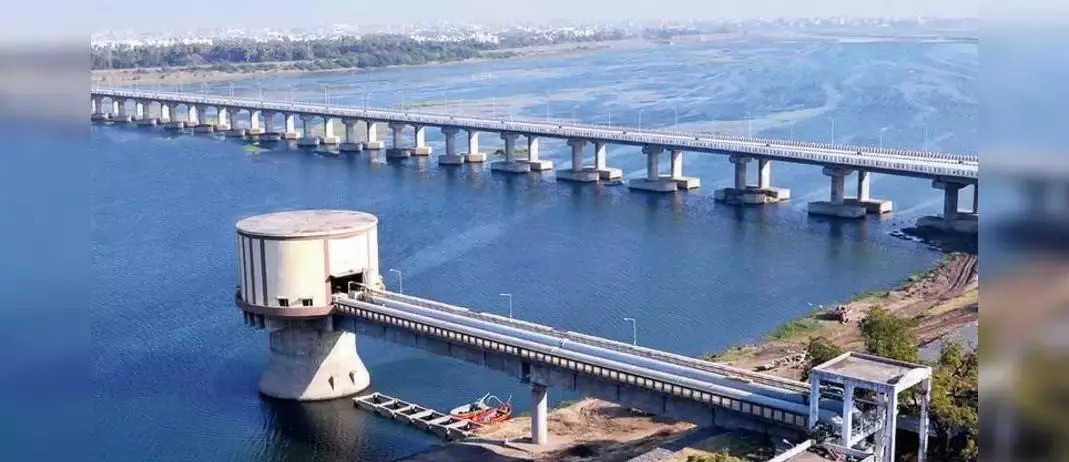Surat, an Indian city in the state of Gujarat, has become a model for rainwater harvesting and smart urban planning. With its cutting-edge methods of rainwater harvesting and being a "Smart City," Surat is going great lengths in providing every household with means to harvest rainwater at an affordable cost. This project not only boosts groundwater tables but also makes the city one of the leading centers of sustainable living.
Rainwater Harvesting Initiatives
Surat's rainwater harvesting process is diverse and includes government involvement as well as community effort. The Surat Municipal Corporation (SMC) has mandated the inclusion of rainwater harvesting systems in new constructions, particularly high-rise buildings and large sites. This ensures rainwater collection for non-potable uses and lessens the burden on municipal water sources.
Key Highlights:
1) Compulsory Rainwater Harvesting: Every new building with a plot size of more than 4000 square meters shall have to provide rainwater harvesting systems, thereby encouraging large-scale implementation.
2) Rebate Scheme: The SMC provides subsidies to residential societies, apartments, industrial units, and open plots to promote participation. The subsidy amounts to 50% of the actual cost or Rs. 2000, whichever is higher.
3) Community Involvement: Regular educational programs and awareness drives are organized to engage school students, colleges, and NGOs in water conservation practices.
Economical Rainwater Harvesting Systems
The affordability of rainwater harvesting systems in Surat is promoted by subsidies and effective technologies. Local businesses offer a variety of systems, ranging from simple installations to complex structures, at affordable prices. For example, a simple rainwater harvesting system can be priced at approximately Rs 50,000, whereas more sophisticated systems can cost up to Rs 400,000.
Key Features:
1) Affordable Solutions: Systems are made to be cost-effective, with initial prices ranging from Rs 50,000 for minimal installations.
2) Technological Innovation: New materials such as pre-cast modules and metal are employed to provide durability and efficiency.
3) Broad Application: Systems can be applied to residential, industrial, and agricultural purposes, making them adaptable to various requirements.
Why Surat is a Smart City
Surat has been named a Smart City as it has adopted an integrated model of urban development, covering water management, digital governance, and sustainable infrastructure. The city has established numerous smart initiatives like QR codes for effective public services and an effective IT infrastructure for citizen services.
Smart City Initiatives:
1) Digital Transformation: QR codes are being deployed on every residence to simplify data collection and enhance civic services such as water supply and health surveillance.
2) Smart Infrastructure: Initiatives target water supply quality, sewage recycling, and renewable energy resources to make the urban environment sustainable.
3) Citizen Engagement: Surat's smart city initiative highlights public involvement through mobile apps and digital platforms to ensure citizens' active participation in urban administration.
Future Plans and National Recognition
Surat's initiatives towards water conservation have been recognized at the national level, with the city being a model for other states. Recent developments include the inauguration of thousands of rainwater harvesting schemes under CSR initiatives and government partnerships. These schemes not only enhance groundwater levels but also encourage community participation in water management.
National Impact:
1) Massive Initiatives: More than 27,300 rainwater harvesting projects are being executed in Surat, reflecting its efforts towards water saving.
2) State Sponsorship: Prime Minister's 'Jal Sanchay Jan Bhagidari' project has been launched in Surat, highlighting the city's contributions to water saving at a national level.
3) Participation by Public: Surat's people-centred approach in engaging citizens, industries, and local bodies for water management is being adopted on a pan-Indian level.
In short, Surat's strategy in rainwater harvesting and smart city initiatives has made it a front runner in the field of sustainable urban development. By offering water conservation at an affordable price and making it accessible to all, Surat is setting a benchmark for other cities to achieve, assuring a water-secure future for its citizens.
Source: Times of India, Surat Municipal Corporation, Smart City Surat

